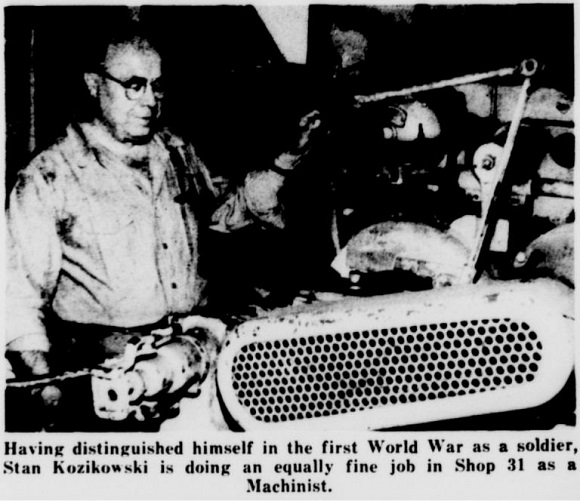On the evening of October 2nd, 1918 Major Charles W. Whittlesey, commanding officer of the 1st Battalion, 308th Infantry Regiment, 77th Division, led nearly 700 men under his command into the narrow Charlevaux Ravine deep in the Argonne Forest of northeastern France. Units operating on his right and left flanks failed to keep up, leaving his unit out ahead of the main American line. That night, German troops slipped in behind his unit, breaking his liaison link to the rear and surrounding the Americans ensconced there in the ravine. Five days later, the Major led 194 survivors out of the ravine… and into history. – The U.S. WWI Centennial Commission
One of the members of the Lost Battalion, Pvt. Stanislaw Kozikowski of Perry Avenue (and later 65th Street), Maspeth, was awarded the Army’s Distinguished Service Cross. The citation read:
“The Distinguished Service Cross is presented to Stanislaw Kozikowski, Private, U.S. Army, for extraordinary heroism in action near Binarville, France, October 2–7, 1918. During the time when his company was isolated in the Argonne forest and cut off from communication with friendly troops, Private Kozikowski, together with another soldier, volunteered to carry a message through the German lines, although he was aware that several unsuccessful attempts had been previously made by patrols and members of which were either killed, wounded or driven back. By his courage and determination, he succeeded in delivering the message and brought relief to his battalion.”
After his discharge from the Army, Kozikowski continued to serve his country. He had already worked as a machinist before the war, and in 1927 he took a job at the Brooklyn Navy Yard, where he worked for more than 30 years, mostly in Shop 31, which is today the home of New Lab. He displayed the same stoicism and determination in his job that he had in October 1918. The Brooklyn Navy Yard Shipworker described him as ‘a quiet, unassuming individual, a man one would hardly expect to be pointed out as one of this country’s greatest heroes of World War I.’ His supervisors at the Yard said of him to Lost Battalion historians Thomas M. Johnson and Fletcher Pratt, ‘No job is too difficult for Stan. … The man is extremely cooperative and never complains about any assignment.’ Stan passed away in 1967 and is buried in Long Island National Cemetery. – Andrew Gustafson, TurnstileTours.com



